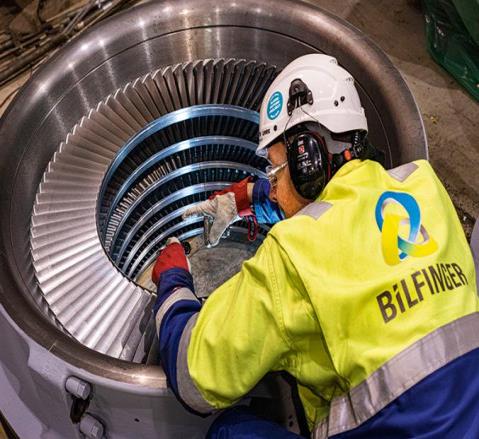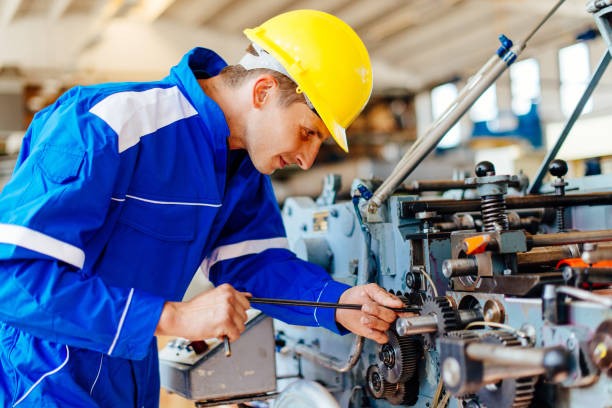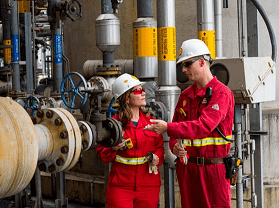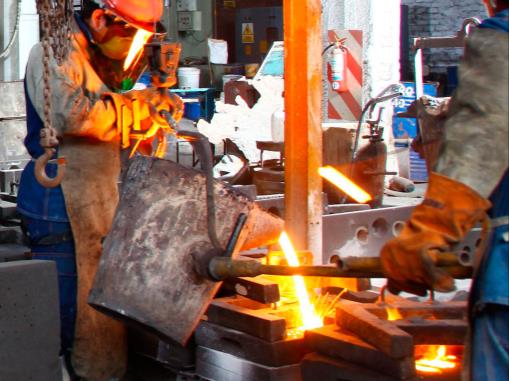COURSE OVERVIEW
FE0089 : API Codes (Rotary and Static Equipment)

OVERVIEW
| COURSE TITLE | : | FE0089 : API Codes (Rotary and Static Equipment) |
| COURSE DATE | : | Oct 12 - Oct 16 2025 |
| DURATION | : | 5 Days |
| INSTRUCTOR | : | Mr. Geoff Kaschula |
| VENUE | : | Doha, Qatar |
| COURSE FEE | : | $ 6000 |
Course Description
This course is designed to provide participants with a detailed and up-to-date overview on API Codes (Rotary & Static Equipment). It covers the role of API standards in industrial applications; the classification of API codes and the distinction between rotary and static equipment and the relevant codes; the scope and application of API 610 in pump design and operation, the key requirements and applications of steam turbines; the special-purpose steam turbines for petroleum and chemical industries; the importance of API codes for compliance and safety; the application and key points in the design and operation of gear units; and the lubrication systems and their critical role in rotary equipment.
Further, the course will also discuss the gas turbine requirements for industrial applications; the key standards for compressors and expander-compressors used in the industry; designing, maintaining and inspecting reciprocating compressors; addressing the common operational challenges and the role of API standards in troubleshooting; the design and construction of welded steel tanks; the tank inspection, repair, alteration and reconstruction of storage tanks; the heat exchanger design and application in industrial operations; and the air-cooled heat exchangers and their applications.
During this intellective course, participants will learn the large, welded, and low-pressure storage tanks design and construction in accordance with API 620; the inspection and maintenance of static equipment and pressure vessel; the key requirements and applications of the piping inspection code; the evaluation of existing equipment for continued service and operation; the role of risk-based inspection (RBI) in maintaining the integrity of rotary and static equipment; the quality control during refractory installation in static equipment and maintaining equipment integrity and reliability; integrating API codes for operational decision-making; the API certification process for inspectors and operators; the latest updates in API standards related to rotary and static equipment; and the challenges faced in complying with API standards and strategies for overcoming them.
link to course overview PDF
TRAINING METHODOLOGY
This interactive training course includes the following training methodologies:
LecturesPractical Workshops & Work Presentations
Hands-on Practical Exercises & Case Studies
Simulators (Hardware & Software) & Videos
In an unlikely event, the course instructor may modify the above training methodology for technical reasons.
VIRTUAL TRAINING (IF APPLICABLE)
If this course is delivered online as a Virtual Training, the following limitations will be applicable:
| Certificates | : | Only soft copy certificates will be issued |
| Training Materials | : | Only soft copy materials will be issued |
| Training Methodology | : | 80% theory, 20% practical |
| Training Program | : | 4 hours per day, from 09:30 to 13:30 |
This course is no longer available.
Please check below for other scheduled dates.
OTHER SCHEDULED DATES
| Refrence | Date | Location | Instructor | Fee (USD) | Outline | Actions |
|---|---|---|---|---|---|---|
| FE0089 | Jan 18 - Jan 22 2026 (5 Days) | Al Khobar, KSA | Mr. Geoff Kaschula | $ 5,500 | Outline | |
| FE0089 | Jun 22 - Jun 26 2026 (5 Days) | Abu Dhabi, UAE | Mr. Geoff Kaschula | $ 5,500 | Outline | |
| FE0089 | Oct 11 - Oct 15 2026 (5 Days) | Doha, Qatar | Mr. Geoff Kaschula | $ 6,000 | Outline | |
| FE0089 | Dec 13 - Dec 17 2026 (5 Days) | Dubai, UAE | Mr. Geoff Kaschula | $ 5,500 | Outline |
RELATED COURSES

FE1021 : Materials and Testing Foundation
- Date: Mar 29 - Apr 02 / 3 Days
- Location: Istanbul, Turkey
- Course Details Register

FE0570 : API 579-1/ASME FFS-1: Fitness-for-Service (FFS) of Process Plant Equipment, Pressure Vessels, Piping & Storage Facilities
- Date: Mar 29 - Apr 02 / 3 Days
- Location: Al Khobar, KSA
- Course Details Register

FE0985 : Thermal Infrared Testing Level-I Training & Certification (SNT-TC-1A)
- Date: Mar 14 - Mar 18 / 3 Days
- Location: Cairo, Egypt
- Course Details Register

FE0928 : Metallurgy for Non Metallurgist
- Date: Mar 29 - Apr 02 / 3 Days
- Location: Doha, Qatar
- Course Details Register
